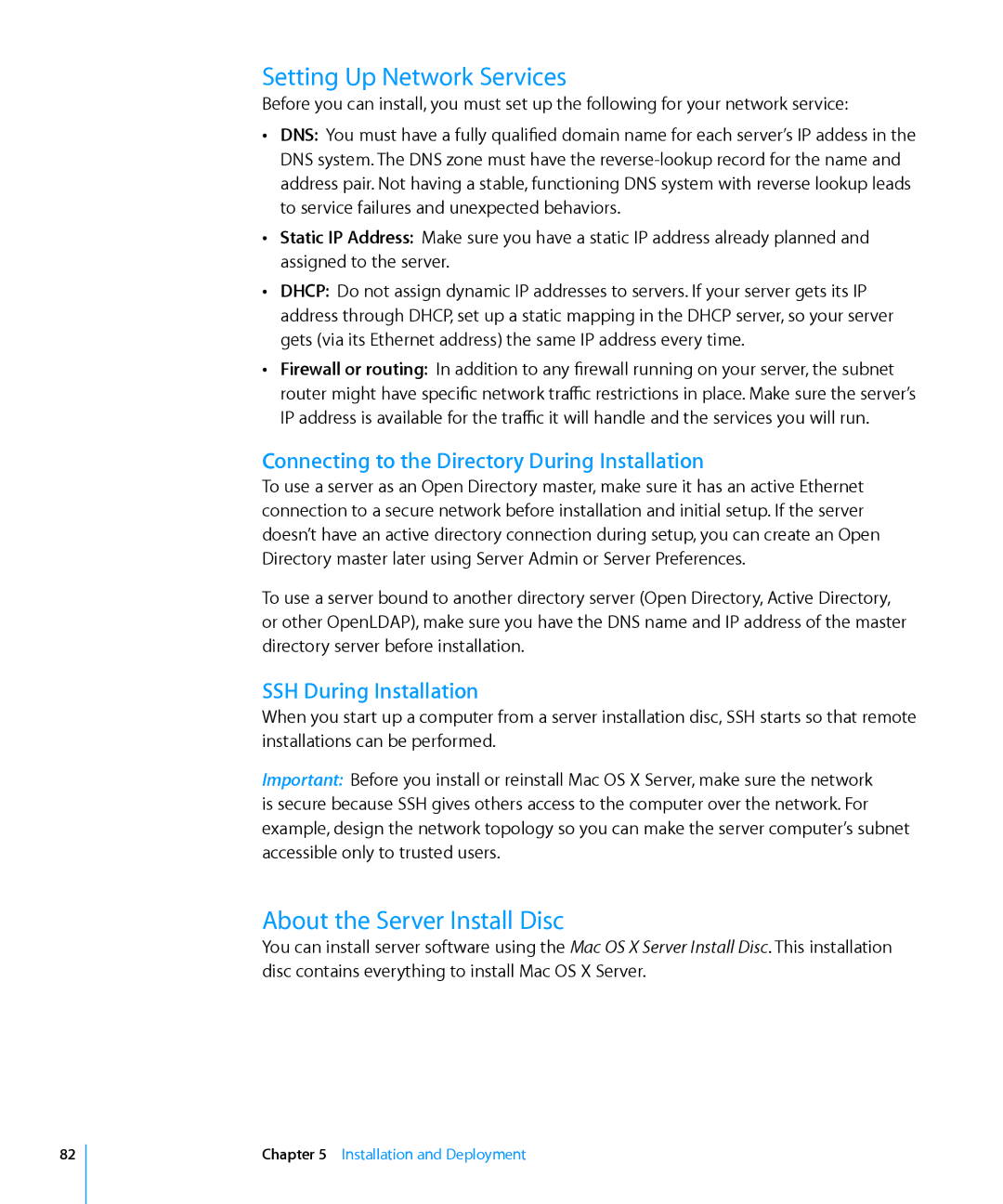Setting Up Network Services
Before you can install, you must set up the following for your network service:
ÂÂ DNS: You must have a fully qualified domain name for each server’s IP addess in the DNS system. The DNS zone must have the
ÂÂ Static IP Address: Make sure you have a static IP address already planned and assigned to the server.
ÂÂ DHCP: Do not assign dynamic IP addresses to servers. If your server gets its IP address through DHCP, set up a static mapping in the DHCP server, so your server gets (via its Ethernet address) the same IP address every time.
ÂÂ Firewall or routing: In addition to any firewall running on your server, the subnet router might have specific network traffic restrictions in place. Make sure the server’s IP address is available for the traffic it will handle and the services you will run.
Connecting to the Directory During Installation
To use a server as an Open Directory master, make sure it has an active Ethernet connection to a secure network before installation and initial setup. If the server doesn’t have an active directory connection during setup, you can create an Open Directory master later using Server Admin or Server Preferences.
To use a server bound to another directory server (Open Directory, Active Directory, or other OpenLDAP), make sure you have the DNS name and IP address of the master directory server before installation.
SSH During Installation
When you start up a computer from a server installation disc, SSH starts so that remote installations can be performed.
Important: Before you install or reinstall Mac OS X Server, make sure the network is secure because SSH gives others access to the computer over the network. For example, design the network topology so you can make the server computer’s subnet accessible only to trusted users.
About the Server Install Disc
You can install server software using the Mac OS X Server Install Disc. This installation disc contains everything to install Mac OS X Server.
82
Chapter 5 Installation and Deployment
